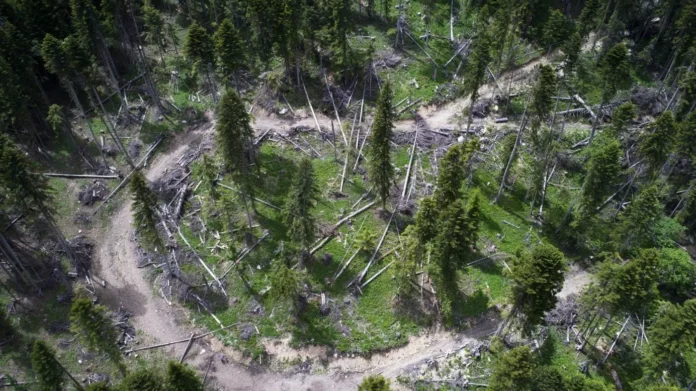Environmental organized crime is a massive global enterprise that is not only causing harm to our planet, but also generating huge profits. According to Interpol, this illegal business brings in up to $281 billion each year, making it the third most lucrative criminal activity worldwide. What is even more alarming is that the U.S. financial system seems to be aiding in concealing these profits.
Environmental crime, also known as eco-crime, refers to any illegal activities that harm the environment and its resources. This includes poaching, illegal logging, wildlife trafficking, illegal fishing, and many others. These activities not only have a devastating impact on our planet, but they also pose a serious threat to our economy and security.
The profits from environmental crime are often used to fund other criminal activities such as drug trafficking and terrorism. This makes it a global issue that needs to be addressed urgently. Unfortunately, the U.S. financial system seems to be playing a role in facilitating this illegal trade.
The Financial Action Task Force (FATF), an intergovernmental organization that sets standards for combating money laundering and terrorist financing, has identified the U.S. as a major hub for money laundering related to environmental crime. This is due to the country’s advanced financial infrastructure and its role as a major global financial center.
One of the main ways in which the U.S. financial system is being used to conceal profits from environmental crime is through trade-based money laundering. This involves disguising the proceeds from illegal activities as legitimate trade transactions. For example, criminals may use the profits from illegal logging to purchase goods from the U.S. and then sell them in their home country, making it difficult to trace the original source of the funds.
Another way in which the U.S. financial system is being exploited is through shell companies. These are companies that exist only on paper and are used to hide the true ownership of assets. Criminals often use these companies to launder money from environmental crime, making it nearly impossible for law enforcement agencies to track the illicit funds.
The consequences of environmental crime are not only limited to the environment and economy, but also have a serious impact on human lives. Poaching, for instance, not only threatens the survival of endangered species, but also fuels corruption and violence in local communities. It also has a ripple effect on the tourism industry, which is a major source of income for many countries.
Illegal logging, on the other hand, not only destroys forests and wildlife habitats, but also contributes to climate change and exacerbates the effects of natural disasters such as floods and landslides. It also has a negative impact on indigenous communities who rely on forests for their livelihoods.
It is clear that environmental crime is a global issue that requires a coordinated and comprehensive response. The U.S. government has taken some steps to address this problem, such as the creation of the Wildlife Trafficking Alliance and the establishment of the Illegal Logging Task Force, but more needs to be done.
One solution could be to strengthen regulations and enforcement measures to prevent trade-based money laundering and the use of shell companies for illicit activities. This would require collaboration between law enforcement agencies, financial institutions, and other relevant stakeholders.
Furthermore, raising awareness about the consequences of environmental crime and the role of the U.S. financial system in facilitating it is crucial. This can be achieved through education and outreach programs, as well as partnerships with non-governmental organizations.
In conclusion, environmental organized crime is a lucrative business that is not only causing harm to our planet, but also threatening our economy and security. The U.S. financial system, with its advanced infrastructure and global reach, has unfortunately become a facilitator of this illegal trade. It is imperative that immediate action is taken to address this issue and prevent further damage to our environment and society. Let us all work together towards a sustainable and secure future for generations to come.

